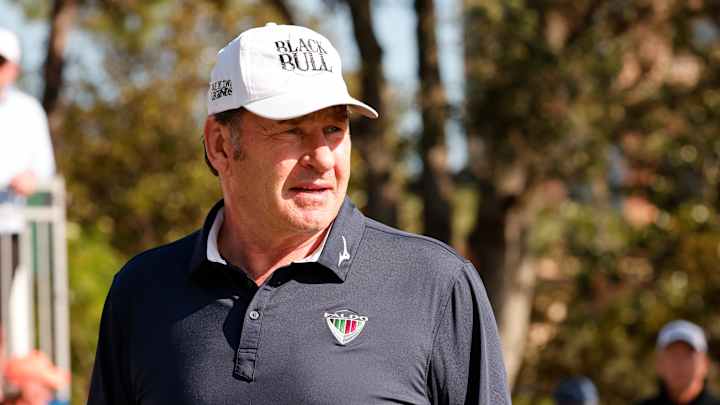‘They’re Done’: Nick Faldo Says LIV Golfers Should Be Banned From Ryder Cup

As the battle between LIV Golf and the PGA Tour continues to intensify, one looming question is how eligibility for this fall's Ryder Cup teams will be handled. To Nick Faldo, the answer is clear as day: LIV Golf members have joined a rival tour, and they should “move on” from the Ryder Cup.
The six-time major champion and recently retired CBS Sports golf broadcaster told Sky Sports News that former Ryder Cup Europe stars such as Ian Poulter, Sergio Garcia and Lee Westwood, who have defected to the Saudi-backed league, should not be allowed to participate in the biennial team competition under any circumstances.
“They’re done,” Faldo said. “It’s a rival tour. If you work for a company for 20 years and you then leave to go to a rival company, I can promise you your picture won’t still be on the wall. You’ve moved on. Fine, off you go.”
The Ryder Cup is jointly administered by the PGA of America and Ryder Cup Europe. Although the governing bodies have not made an official decision on this year’s competition—which will be held at Marco Simone Golf and Country Club in Rome—they’ve made their stance evident. Last summer, Henrik Stenson was stripped of his Team Europe captaincy for joining LIV Golf, and replaced by Luke Donald.
According to Faldo, LIV players should have seen such actions coming.
“They made that decision and I’m sure they knew it was going to cost them,” Faldo continued. “They were playing the maths game. They were getting a huge chunk of money up front, and they knew it was going to lose them sponsors, but they thought ‘I still win.’”
“It’s a closed shop: 48 guys given loads of money. What gripes me is it’s not growing the game of golf.”
Faldo, who has played in 11 Ryder Cups, thinks that LIV Golf has actually given Team Europe a unique opportunity to find new young talent—a contingent that will become the bedrock of the organization for years to come.
“They’re all at the age where Europe needs to find a new breed of 25-year-olds that can play half a dozen or more Ryder Cups, and I think we’re going to have that.”

Gabrielle Herzig is a Breaking and Trending News writer for Sports Illustrated Golf. Previously, she worked as a Golf Digest Contributing Editor, an NBC Sports Digital Editorial Intern, and a Production Runner for FOX Sports at the site of the 2018 U.S. Open. Gabrielle graduated as a Politics Major from Pomona College in Claremont, California, where she was a four-year member and senior-year captain of the Pomona-Pitzer women’s golf team. In her junior year, Gabrielle studied abroad in Scotland for three months, where she explored the Home of Golf by joining the Edinburgh University Golf Club.
Follow GabbyHerzig